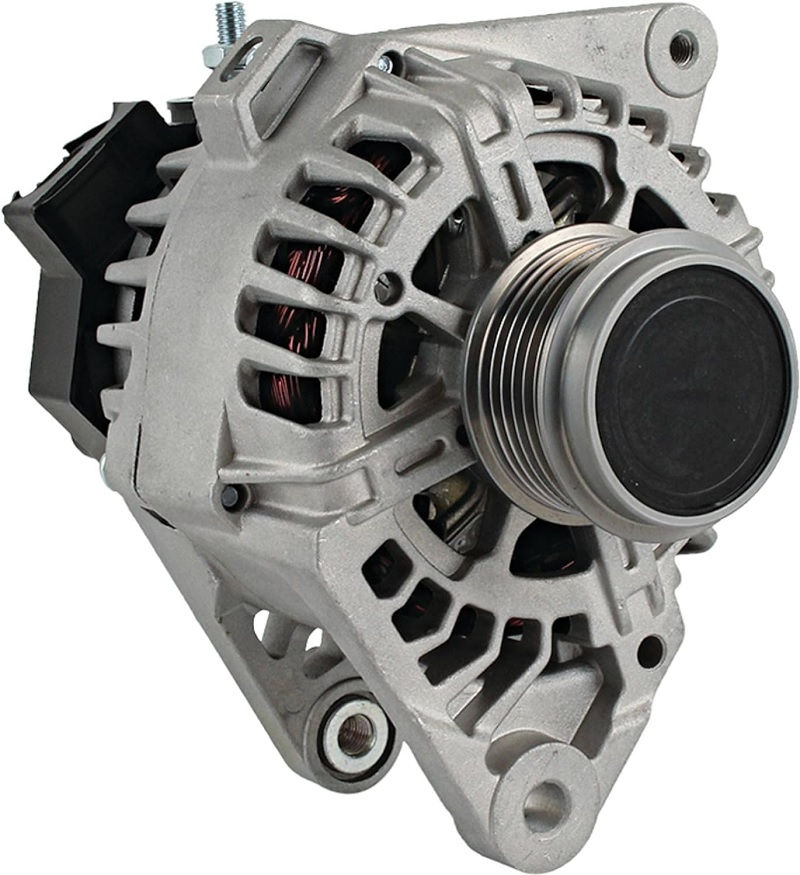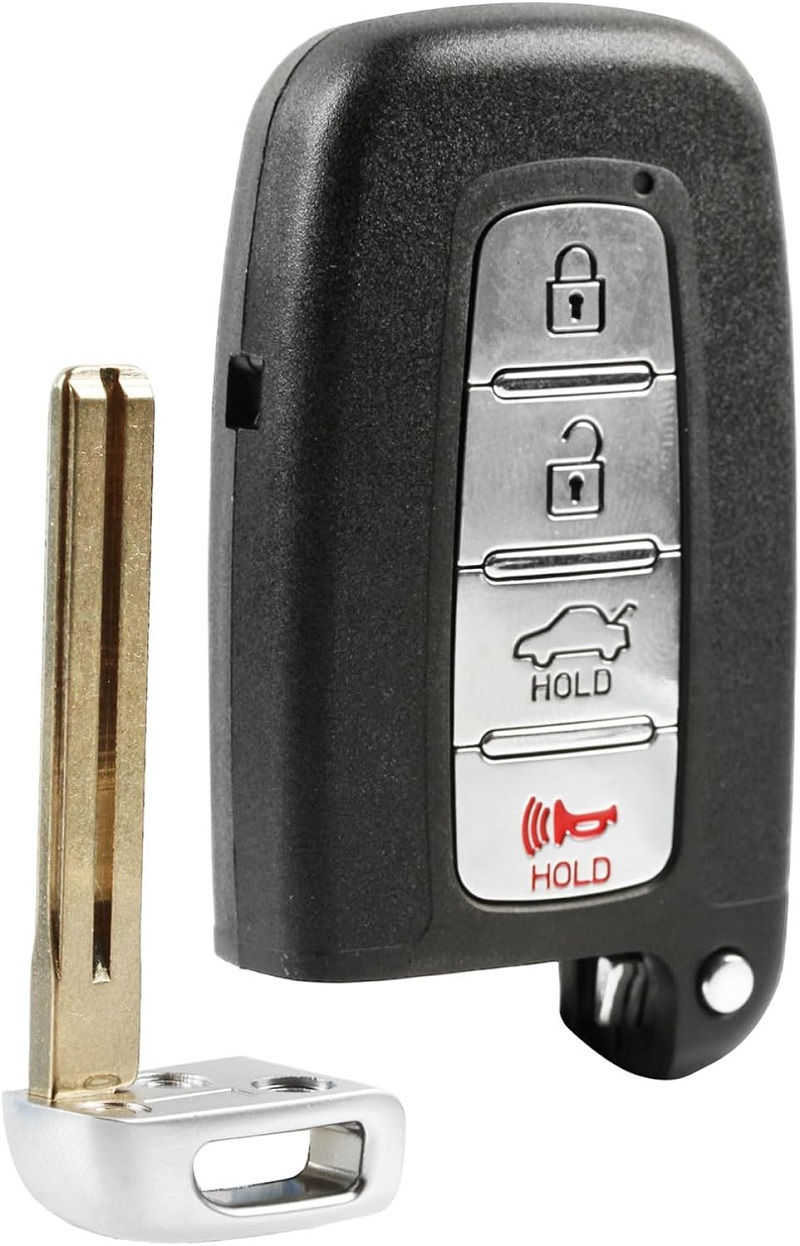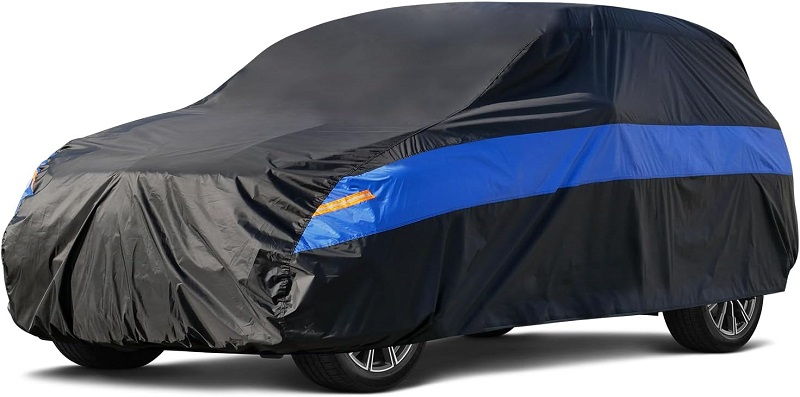This post contains affiliate links. This means I will make a commission at no extra cost to you should you click through and make a purchase [ “As an Amazon Associate, I earn from qualifying purchases.” ]. Read the full disclosure here.
Kia Soul Alternator GuideMechanic.Com The Kia Soul alternator plays a crucial role in the vehicle’s electrical system. It ensures that the battery remains charged and powers various electrical devices while the engine is running.
In this comprehensive guide, we will delve into all the essential details about the Kia Soul alternator, including its functions, signs of failure, maintenance tips, and more.
What is an Alternator and How Does it Work?
Check out this DB Electrical 400-40154 Alternator

An alternator is a device that converts mechanical energy into electrical energy. In the case of the Kia Soul, the alternator is driven by the engine’s crankshaft through a belt.
When the engine is running, the alternator spins, generating electricity that is used to charge the battery and power the vehicle’s electrical systems.
Components of an Alternator
The Kia Soul alternator consists of several key components, including:
- Stator: The stator is a stationary part of the alternator that contains a series of wire windings.
- Rotor: The rotor is a rotating part that sits inside the stator and is connected to the engine’s crankshaft.
- Diodes: Diodes are used to convert the alternating current (AC) produced by the alternator into direct current (DC) that can be used by the vehicle’s electrical systems.
- Voltage Regulator: The voltage regulator controls the output voltage of the alternator to ensure that it remains within the desired range.
Alternator Operation
When the engine is running, the rotation of the crankshaft causes the rotor inside the alternator to spin. As the rotor spins, it creates a rotating magnetic field that induces an alternating current in the stator windings.
See Also: 2013 Kia Optima Battery: Jumpstarting Your Kia Optima
The alternating current produced by the stator is converted into direct current by the diodes. The voltage regulator then controls the amount of voltage produced by the alternator to keep it within the optimal range for charging the battery and powering the vehicle’s electrical systems.
Signs of a Failing Alternator
Recognizing the signs of a failing alternator is crucial for avoiding potential breakdowns and addressing issues before they escalate. Here are some common indicators that your Kia Soul’s alternator may be failing:
Dimming Headlights
If you notice that your headlights are dimming while driving or at idle, it may be a sign of a failing alternator. The alternator is responsible for providing power to the headlights, and a decrease in brightness indicates a potential issue.
Electrical Malfunctions
When the alternator is failing, you may experience various electrical malfunctions in your Kia Soul. These can include flickering dashboard lights, erratic power window operation, or a malfunctioning radio or sound system.
Strange Noises
A failing alternator may produce unusual noises, such as grinding, whining, or squealing sounds. These noises could be caused by worn-out bearings or a loose belt, indicating that the alternator needs attention.
Battery Issues
If your battery is frequently dying or losing its charge quickly, it could be a sign of a failing alternator. The alternator is responsible for charging the battery while the engine is running, so a malfunctioning alternator can lead to battery problems.
Warning Lights
The dashboard of your Kia Soul is equipped with warning lights that illuminate when there is a problem with the vehicle. If the battery or charging system warning light comes on, it could indicate a problem with the alternator.
Testing the Alternator
Check out this Key Fob fits Hyundai Kia Smart Keyless Entry Remote

If you suspect that your Kia Soul’s alternator is not functioning properly, there are several tests you can perform to diagnose the issue. Here are some common methods for testing the alternator:
Visual Inspection
Start by visually inspecting the alternator for any signs of damage or loose connections. Check the condition of the drive belt and ensure that it is properly tensioned. Look for any visible signs of wear or corrosion on the alternator itself.
Voltage Test
Using a multimeter, you can measure the voltage output of the alternator. Start the engine and set the multimeter to DC voltage.
See Also: Kia Catalytic Converter Problems
Connect the positive lead to the positive terminal of the battery and the negative lead to the alternator’s positive output terminal. A healthy alternator should produce a voltage reading between 13.5 to 14.5 volts.
Load Test
A load test can help determine the alternator’s ability to handle electrical loads. With the engine running, turn on various electrical components, such as the headlights, air conditioning, and radio. Monitor the voltage reading on the multimeter while these components are in use. If the voltage drops significantly, it could indicate a problem with the alternator.
Amperage Test
An amperage test measures the alternator’s output current. This test requires a specialized ammeter that can handle the high current produced by the alternator. Consult a professional or refer to the vehicle’s service manual for instructions on performing an amperage test.
Replacing the Alternator
If your Kia Soul’s alternator needs to be replaced, it is recommended to seek professional assistance. However, if you have the necessary skills and tools, you can attempt to replace the alternator yourself. Here are the general steps involved in replacing the alternator:
1. Prepare the Vehicle
Park your Kia Soul on a level surface and engage the parking brake. Disconnect the negative terminal of the battery to prevent any electrical mishaps.
2. Remove the Serpentine Belt
Using a wrench or a belt tensioner tool, relieve tension from the serpentine belt and remove it from the alternator pulley.
3. Disconnect Electrical Connections
Disconnect any electrical connections attached to the alternator, such as the wiring harness and the battery cable.
4. Remove Mounting Bolts
Using the appropriate socket or wrench, remove the mounting bolts that secure the alternator to the engine block or bracket.
5. Install the New Alternator
Position the new alternator in place and tighten the mounting bolts. Reconnect the electrical connections, ensuring they are secure. Finally, reinstall the serpentine belt and ensure proper tension.
6. Test the New Alternator
Start the engine and perform the necessary tests to ensure that the new alternator is functioning correctly. Check the voltage output and verify that all electrical components are operating as expected.
Preventive Maintenance for the Alternator
Check out this Molebt SUV Car Cover Waterproof All Weather for Automobiles

To prolong the lifespan of your Kia Soul’s alternator and minimize the risk of failures, regular maintenance is essential. Here are some preventive maintenance tips for keeping your alternator in optimal condition:
Keep the Alternator Clean
Regularly inspect the alternator for any dirt, debris, or corrosion. Clean the alternator using a soft brush and a mild cleaner if necessary. Ensure that the alternator is completely dry before reconnecting any electrical connections.
Check Belt Tension
Inspect the serpentine belt that drives the alternator for any signs of wear, cracking, or stretching. Ensure that the belt is properly tensioned according to the manufacturer’s specifications. Replace the belt if necessary.
Maintain Proper Battery Health
A healthy battery is crucial for the proper functioning of the alternator. Check the battery regularly for any signs of corrosion or leakage.
See Also: Kia Stinger Blue: Performance Capabilities Of Kia Stinger
Keep the battery terminals clean and secure. If the battery is old or weak, consider replacing it to avoid placing excessive strain on the alternator.
Avoid Excessive Electrical Load
Minimize the use of electrical components when the engine is not running. Excessive electrical load can put a strain on the alternator and reduce its lifespan.
If possible, avoid using high-power devices, such as aftermarket sound systems or additional lighting, without upgrading the alternator.
Regularly Test the Alternator
Perform regular tests on the alternator to ensure that it is operating within the acceptable range. Use a multimeter to measure the voltage output and perform load tests as described earlier. By catching any issues early on, you can prevent further damage to the alternator and other electrical components.
Upgrading Your Alternator
If you are looking to enhance the electrical performance of your Kia Soul, you may consider upgrading the alternator.
Upgrading to a higher-output alternator can provide additional electrical power for aftermarket modifications or increased electrical demands. Here are some factors to consider when upgrading your alternator:
Power Output
Determine the power requirements of your additional electrical components or modifications. Calculate the total power needed and choose an alternator that can meet or exceed this requirement. Keep in mind that the alternator’s power output should be compatible with your vehicle’s electrical system.
Compatibility
Ensure that the upgraded alternator is compatible with your Kia Soul’s electrical system. Consider factors such as the mounting points, wiringcompatibility, and connector compatibility. It is recommended to consult with a professional or refer to the manufacturer’s specifications to ensure a proper fit.
Quality and Reliability
When considering an upgraded alternator, prioritize quality and reliability. Look for reputable brands known for producing high-quality alternators that are built to last. Reading customer reviews and seeking recommendations can help you make an informed decision.
Professional Installation
Upgrading the alternator may require additional wiring or modifications to the electrical system. It is recommended to have the upgraded alternator installed by a professional who has experience with your specific vehicle model. They can ensure that the installation is done correctly and safely.
Frequently Asked Questions about Kia Soul Alternators
Here are some frequently asked questions about Kia Soul alternators:
1. Are alternators covered under warranty?
Yes, the alternator may be covered under the vehicle’s warranty. However, it is essential to check the specific terms and conditions of the warranty coverage provided by the manufacturer or dealership.
2. Can I use an alternator from a different Kia Soul model?
In some cases, alternators from different Kia Soul models may be compatible. However, it is crucial to ensure that the alternator is the correct fit for your specific vehicle model and that the electrical specifications match.
3. How long does a Kia Soul alternator typically last?
The lifespan of a Kia Soul alternator can vary depending on various factors, such as driving conditions, maintenance practices, and electrical demands. However, on average, a well-maintained alternator can last between 80,000 to 150,000 miles or more.
4. Can I replace the alternator myself?
While it is possible to replace the alternator yourself, it is recommended to seek professional assistance, especially if you are not experienced with automotive repairs. Alternator replacement requires proper tools and knowledge to ensure a successful and safe installation.
5. How much does it cost to replace a Kia Soul alternator?
The cost of replacing a Kia Soul alternator can vary depending on factors such as the vehicle model, the brand of the alternator, and labor costs. On average, the cost can range from $300 to $700 or more, including parts and labor.
Tips for Maintaining a Healthy Electrical System
In addition to taking care of the alternator, maintaining a healthy electrical system in your Kia Soul is crucial. Here are some additional tips:
See Also: P0441 Kia Soul: How To Diagnose
1. Regularly check and clean battery terminals
Inspect the battery terminals for any signs of corrosion or buildup. Clean the terminals using a battery terminal cleaner or a mixture of baking soda and water. Ensure that the terminals are securely tightened after cleaning.
2. Keep electrical connections secure
Periodically check the electrical connections throughout your vehicle and ensure that they are secure. Loose or corroded connections can lead to electrical issues and affect the performance of the alternator.
3. Avoid jump-starting excessively
While jump-starting a vehicle can be helpful in emergencies, relying on jump-starting frequently can put strain on the electrical system. If your battery frequently requires jump-starting, have it inspected by a professional to determine the underlying issue.
4. Monitor battery health
Regularly check the battery’s health by measuring its voltage or using a battery tester. If the battery consistently shows low voltage or fails the test, consider replacing it to prevent unnecessary strain on the alternator.
5. Use electrical components wisely
Avoid overloading your electrical system by using high-power electrical components excessively. Be mindful of the power requirements of aftermarket modifications and ensure that your alternator can handle the additional load.
Common Electrical Problems in Kia Soul
In addition to alternator issues, Kia Soul owners may encounter other common electrical problems. Here are a few examples:
1. Blown Fuses
Blown fuses can cause various electrical components to stop working. If you experience multiple blown fuses, it may indicate an underlying electrical issue that requires attention.
2. Faulty Wiring
Wiring issues can lead to intermittent electrical problems or complete failure of certain systems. Inspect the wiring harnesses for any signs of damage, such as frayed wires or loose connections.
3. Malfunctioning Switches
Switches that control various electrical functions, such as power windows or door locks, can wear out over time. If you experience issues with these switches, they may need to be replaced.
4. Battery Drain
If your vehicle’s battery consistently loses its charge, there may be a parasitic draw that is draining power. This can be caused by faulty electrical components or wiring. A professional can diagnose and resolve this issue.
5. Instrument Cluster Problems
Issues with the instrument cluster, such as inaccurate readings or malfunctioning gauges, can be caused by electrical problems. It is recommended to have the instrument cluster inspected and repaired by a professional.
Professional Assistance for Alternator Issues
If you are unsure about handling alternator issues or any electrical problems in your Kia Soul, it is best to seek professional assistance. Here are some tips for finding the right service provider:
1. Research and Read Reviews
Research local service providers and read customer reviews to gauge their reputation and the quality of their services. Look for positive reviews and testimonials from customers who have had similar electrical issues resolved.
2. Check Certifications and Experience
Ensure that the service provider has the necessary certifications and experience to work on your Kia Soul’s electrical system. Look for technicians who are ASE-certified or have specific training in automotive electrical systems.
3. Get Multiple Quotes
Request quotes from multiple service providers to compare prices and services. Be sure to provide detailed information about the issue you are experiencing to receive accurate quotes.
4. Ask for Warranty and Guarantees
Inquire about warranty coverage and guarantees for the services provided. A reputable service provider should stand behind their work and offer warranties for parts and labor.
5. Seek Recommendations
Ask friends, family, or fellow Kia Soul owners for recommendations on reliable service providers in your area. Personal recommendations can provide valuable insights and help you find a trusted professional.
See Also: Kia Sportage Catalytic Converter
By following these tips and working with a qualified service provider, you can ensure that any alternator or electrical issues in your Kia Soul are resolved effectively and efficiently.
Understanding the Kia Soul alternator and maintaining a healthy electrical system is essential for reliable vehicle performance. By being proactive with maintenance, addressing issues promptly, and seeking professional help when needed, you can enjoy a trouble-free driving experience in your Kia Soul for years to come.
- Food Trucks for Sale in Chicago IL - July 4, 2025
- Food Trucks for Sale in Florida by Owner - July 4, 2025
- Food Trucks for Sale in Las Vegas NV - July 4, 2025
